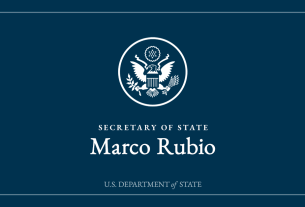As the political landscape shifts with the 2024 presidential election results, millions of Americans face an uncertain future when it comes to their healthcare coverage. Following the victory of Donald Trump, immigrant rights groups, healthcare advocates, and policymakers are raising alarms about the potential rollback of critical healthcare reforms that were put in place under the Affordable Care Act (ACA).
The Threat to Health Insurance
One of the primary concerns among healthcare advocates is the possible dismantling of key provisions of the Affordable Care Act, commonly known as Obamacare, which has expanded healthcare access to millions of Americans since its passage in 2010. Under the ACA, millions of people were able to obtain health insurance coverage, especially low-income families, individuals with pre-existing conditions, and vulnerable populations.
Trump has repeatedly indicated his desire to repeal or weaken the ACA, and this could lead to millions losing coverage. Specifically, proposals to end the Medicaid expansion and reduce the subsidies provided to low-income individuals purchasing plans on the health insurance marketplace could have a devastating impact on access to care.
A study by the Center on Budget and Policy Priorities (CBPP) indicates that up to 23 million people could lose health insurance if the ACA is repealed or significantly altered. This includes individuals who gained coverage through Medicaid expansion and the individual health insurance exchanges.
The Impact on Vulnerable Populations
The most vulnerable Americans are expected to be hardest hit by a potential rollback of the ACA. These include:
- Low-income individuals who rely on Medicaid and subsidized health plans.
- People with pre-existing conditions who gained protections under the ACA, including coverage for chronic illnesses such as cancer, diabetes, or heart disease.
- Minority communities, including Black and Hispanic populations, who have disproportionately benefited from ACA provisions.
If the ACA is scaled back, these groups may find themselves without affordable health coverage, and many could face the devastating financial burden of medical bills, or worse, the inability to access critical care.
Family and Economic Consequences
For millions of families across the U.S., the loss of health coverage could result in more than just health risks. Medical bankruptcies and the inability to access necessary care could place families under severe economic strain. As healthcare costs continue to rise, a significant number of middle-class families could find themselves in a precarious financial situation if their insurance is cut or rendered unaffordable.
Moreover, without access to preventative care and necessary treatments, many Americans could face worsened health outcomes, resulting in greater economic losses as they face longer recovery times, missed work, and growing healthcare expenses.
A Political and Legal Fight Ahead
The incoming administration under Trump is expected to face significant legal and political battles over healthcare policy. While Republicans have long campaigned on dismantling the ACA, there is expected to be continued resistance from state governments, healthcare organizations, and activist groups who argue that a move to repeal the ACA would exacerbate health inequities and lead to widespread harm.
States with expanded Medicaid programs, such as California, New York, and Colorado, may fight to maintain coverage for their residents. Meanwhile, legal challenges could emerge as groups attempt to protect protections for individuals with pre-existing conditions.
Looking Ahead: What Could Be Done
As the country braces for what could be a dramatic shift in healthcare policy, many are calling for bipartisan solutions to address the challenges of the healthcare system without leaving millions at risk. Advocates argue that any efforts to modify or replace the ACA should focus on expanding access, improving affordability, and ensuring that vulnerable communities are not left behind.
In the meantime, healthcare workers and insurance providers will likely continue to face the uncertainty of how to navigate an increasingly polarized political environment and changing regulations that could have far-reaching implications for the millions who rely on the ACA for coverage.
Conclusion
As Donald Trump’s victory sets the stage for potential changes to U.S. healthcare policy, millions of Americans are at risk of losing the health insurance protections they have come to rely on. Advocates for healthcare reform are working tirelessly to protect these essential benefits, while also pushing for broader bipartisan solutions that can ensure affordable care remains accessible to all. The humanitarian and economic costs of dismantling the ACA could have devastating consequences for families, communities, and the broader economy.



